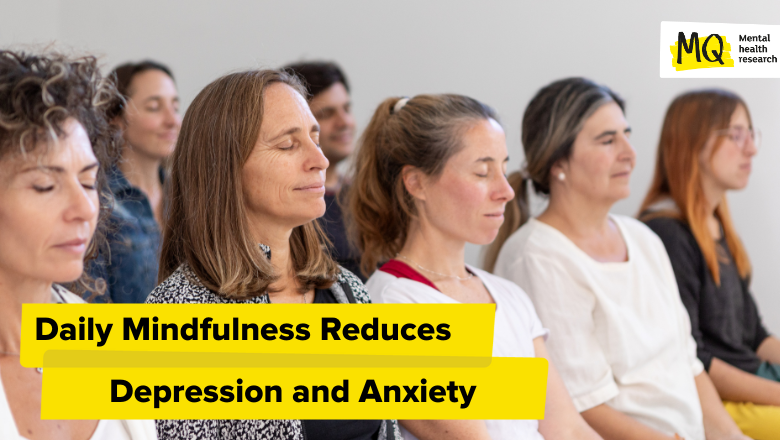A new study from the Universities of Bath and Southampton, published in the British Journal of Health Psychology, found that just 10 minutes of daily mindfulness practice can significantly improve wellbeing, reduce depression and anxiety, and motivate people to adopt healthier lifestyles, including better exercise, eating, and sleeping habits.
The study involved 1,247 adults from 91 countries who were new to mindfulness. Participants were randomly assigned to either a mindfulness routine or a control group that listened to excerpts from Alice in Wonderland. The mindfulness group practiced relaxation exercises, intention-setting, body scans, breath-focused attention, and self-reflection for 30 days using the free Medito app.
Results showed that those who practiced mindfulness experienced a 19.2% greater reduction in depression, a 6.9% improvement in wellbeing, a 12.6% decrease in anxiety, a 7.1% increase in positive health attitudes, and a 6.5% increase in intentions to maintain healthy habits compared to the control group. These benefits were largely sustained one month after the trial ended, with participants reporting continued improvements in wellbeing, depression, attitudes, and sleep quality.
Participants shared various benefits from their mindfulness practice, stating: “Awareness, self-control, gratitude, I am more patient, and I take more joy from the present moment,” and “Completing these meditation sessions has given me a better understanding of the function of my mind. They have helped me to gain a better insight on many things and shown me a different lens through which to look at the world.”
Lead researcher Masha Remskar emphasized that
“even short, daily practices of mindfulness can offer benefits, making it a simple yet powerful tool for enhancing mental health.”
She also noted that the study is among the first to link mindfulness practice to healthier lifestyle behaviors, such as improved sleep and stronger intentions to live a healthy life. “Mindfulness builds the psychological skills you need to build healthy habits,” she added.
Dr Ben Ainsworth highlighted the role of digital technology in making mindfulness accessible, stating, “The research underscores how digital technology — in this case, a freely available app — can help people integrate behavioral and psychological techniques into their lives, in a way that suits them.”
Dr Max Western expressed excitement about the potential impact of the study:
“It is exciting to see that such a light-touch, affordable intervention that has the potential to reach a large global audience can have an impact on healthy lifestyle behaviors. It is even more encouraging that these benefits were sustained after the mindfulness course ended, suggesting this practice can help build sustainable habits.”
The study was funded by the UKRI Economic and Social Research Council and conducted in collaboration with the Medito Foundation, a non-profit organization offering a free mindfulness meditation app. While the Foundation developed the app used in the study, it had no involvement in the data collection, analysis, or publication process.
In this blog, MQ volunteer Jonny explains how mindfulness changed his life.







